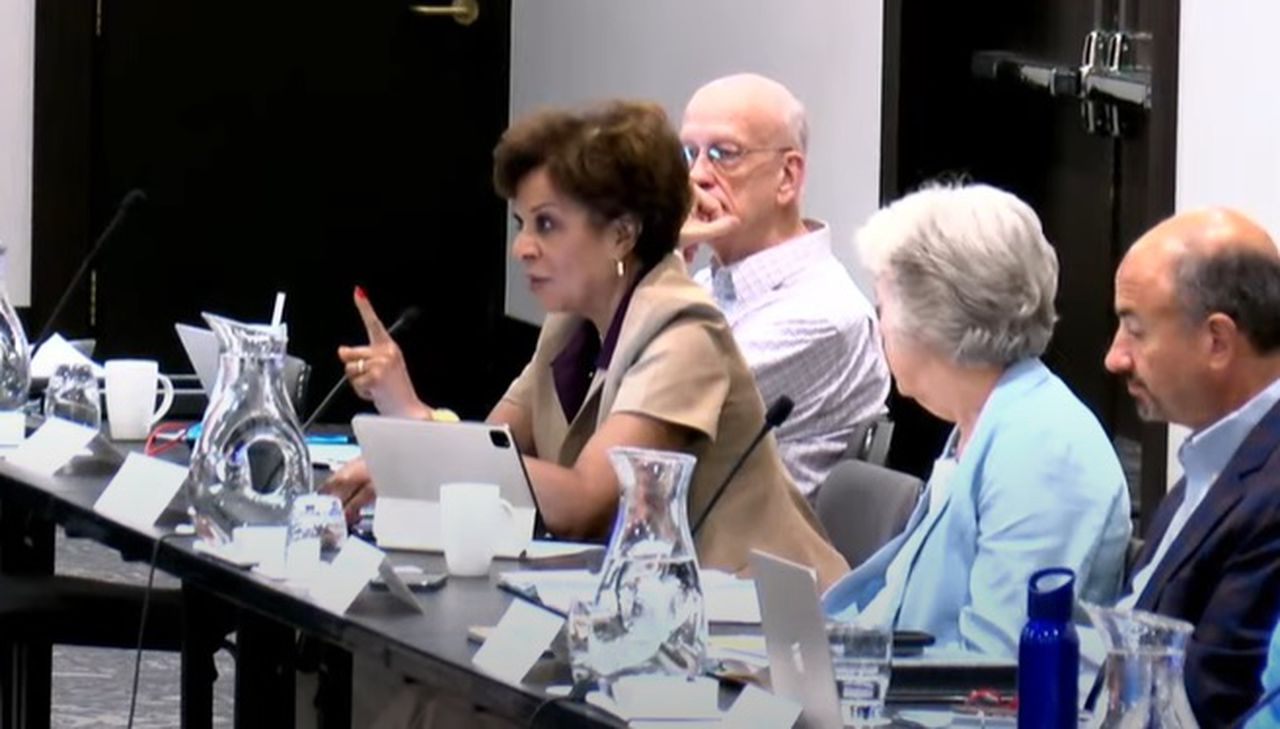Democratic National Committee âalarmed byâ Alabama party losing diversity caucuses
Members of the Democratic National Committee Friday sharply criticized the Alabama Democratic Party’s decision last month to dump diversity caucuses.
Minyon Moore, a co-chair of the DNC’s Rules and Bylaws Committee, said at the meeting Friday that if the party’s State Democratic Executive Committee (SDEC) does not take action to address a recent complaint over the decision, the DNC would take it up “as a continuation of our work with the SDEC in 2019.”
“We’re equally alarmed by the bylaws and the operational allegations which seem to prevent the full participation of members, if true,” Moore said.
“While state parties have much latitude in developing their governing documents, their rules must be consistent with the DNC’s charter, the bylaws, Robert’s Rules of Order, and resolutions or other actions of the national convention and DNC.”
Alabama Democratic Party Chair Randy Kelley Friday declined to comment on the DNC discussion, but repeated an assertion that the new bylaws did not cut representation.
“They didn’t lose any representation, none of the committees,” he said.
The discussion was part of a long-running battle over the leadership and direction of the Alabama Democratic Party that has already drawn in the DNC once before.
Following complaints about the conduct of party leadership elections in 2018, the DNC in early 2019 ordered the state party to adopt new bylaws that, among other measures, created caucuses for groups like Hispanics, LGBTQ+ individuals, people with disabilities, Native Americans, Asian and Pacific Islanders (AAPI), and youth.
A months-long standoff ensued between the DNC and then-chairwoman Nancy Worley, loyal to Vice Chair of Minority Affairs Joe Reed. Later that year, the DNC recognized a new leadership group aligned with then-U.S. Sen. Doug Jones, which implemented the new bylaws.
The Reed faction argued that the bylaws diluted the power of Black voters, who form the greater part of Alabama’s Democratic electorate. The Reed faction won control of the party last August and installed Kelley as chair.
At a May 6 meeting, the SDEC voted to abolish the youth, LGBTQ+ and disabled caucuses, while reducing the power of other minority caucuses. The meeting was tumultuous, and members of the affected caucuses, some of whom are Black, sharply criticized the moves, saying they stripped key groups of representation.
Kelley, who has called the critics “losers,” said that the changes did not cost anyone representation and better reflect the Democratic electorate. On Friday, Kelley said that the new bylaws would increase youth representation.
Vice Chair Tabitha Isner and 42 other Democrats filed a complaint earlier this month with the state party. Members of the DNC’s Rules and Bylaws Committee, which warned the state party about the changes last month, appeared sympathetic to the complaint on Friday.
Yvette Lewis, one of the representatives of the DNC during the fight over the 2019 bylaws, said Friday she sensed “excitement” from groups that got their own caucuses, particularly youth.
“We did not dilute anybody’s vote by increasing participation in our party,” she said. “If anything, we made people feel like they wanted to be a part of the party. And guess what? Blacks are LGBTQ+, Blacks are youth – we didn’t dilute anything.”
Alluding to the U.S. Supreme Court’s recent decision in Allen v. Milligan, where the high court upheld a lower court ruling calling for Alabama to draw a second congressional district with a significant Black population, Lewis said Democrats had an “opportunity,” one that would rely on the turnout of young voters.
“There are people down there that so share our values, that so much want to be a part of the Democratic Party,” she said. “We owe it to them.”
Moore said DNC Chair Jamie Harrison had asked the committee to monitor Alabama, and that he planned to discuss a “course of action” on Saturday “should further actions need to be taken.”
